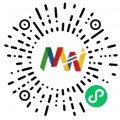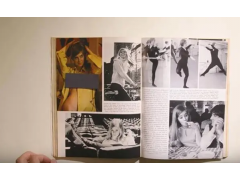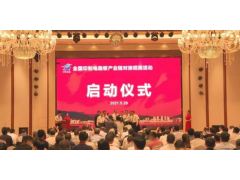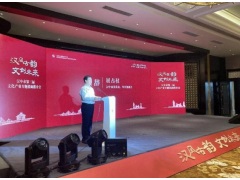News:"Big Figures in the Era of Song Renzong" by Tang Bo
During the Northern Song Dynasty, a large number of craftsmen came out in large countries, and there were frequent highlights in promoting technological innovation. Printing, the compass, and gunpowder among the four great inventions were all upgraded in the Song Dynasty. Among them, printing technology, from engraving to movable type, is self-evident to the world-class significance of cultural communication. The inventor of movable type printing, Bi Sheng, was a small person a thousand years ago, but he is a big person who has influenced thousands of years.
There are very few records about Bi Sheng. Shen Kuo, a scientist in the Northern Song Dynasty, described the principle of movable type printing in "Mengxi Bi Tan", in which Bi Sheng was mentioned twice: "In the Qing calendar, there was a commoner Bi Sheng who was a living board" "(Bi) Sheng died, and his seal was Yu What the group has gained, it has become a treasure to this day." In just a few words, several important information were revealed: Bi Sheng was a plain-headed commoner who lived in the reign of Song Renzong and invented movable type printing during the Qingli period. After Bi Sheng's death, Shen Kuo's nephew got his movable type board and kept it as a family heirloom.
So, what is Bi Sheng's occupation? How is your family background? What was his motivation for inventing movable type? How did Shen Kuo learn about Bi Sheng's movable type board?
From block printing to movable type
Before the invention of printing, hand-copied books were one of the important ways of cultural transmission, and even developed into an industry called "servant books". During the Spring and Autumn Period and the Warring States Period, driven by various schools of thought, the right and ability to read and write extended from the aristocratic class to the scholar class and even the civilian class. In order to realize their ideals, the scholar class began to copy books during their study tours. During the Han Dynasty, aristocratic families were deeply influenced by Confucian classics, and a scholarly family was formed. They have financial strength, and their desire for reading is stronger. Copying books by themselves can no longer meet the actual needs, so they are willing to pay for others to copy books. This kind of private copying is becoming more and more common. The disadvantages of copying are obvious, not only time-consuming and labor-intensive, but also easy to make mistakes. What reversed the trend of "copying books" was the emergence of engraving and printing.
Woodblock printing greatly speeded up the reproduction of books. Yuan Zhen once wrote a preface to "Bai's Changqing Collection": "In the past twenty years, there are no books on the walls of the forbidden provinces, temples, and post offices, and the mouths of princes, concubines, cow boys, and horses. Copying Mole, selling it in the street, or holding it for wine and tea, is everywhere." In the Northern Song Dynasty, engraving and printing books became a common practice, and the number was astonishing.
However, the defects of block printing are also obvious. To print a book and engrave so many boards, the engravers are exhausted and laborious. On a board, if one word is wrong or needs to be changed, then the whole board will become useless. If a book is not reprinted, the whole set of boards will be useless and cannot be reused, and storage will take up space, resulting in huge waste. For example, the "Tripitaka" published in the early years of the Northern Song Dynasty has a total of more than 5,000 volumes, and a total of 130,000 boards were carved, which took 12 years.
Movable type printing came into being in the Northern Song Dynasty and fulfilled Bi Sheng's historical position, which is inseparable from the social environment of "Ji Gu You Wen". Song Taizu determined that "the prime minister must use scholars". Song Taizong also said: "I have no other good, but I like reading, and I see success and failure in ancient and modern times." Song Zhenzong wrote "Poems to Encourage Learning". Song Renzong was even more famous for his literary governance. He organized the compilation of "New Book of Tang" and "New History of the Five Dynasties", and made great progress in poetry, ancient prose and Neo-Confucianism. The emperors of the Northern Song Dynasty advocated the promotion of literature and restraint of martial arts, which naturally led to the formation of a social consensus that it is shameful to be ignorant.
Considering win over intellectuals and expanding the ruling base, the Northern Song Dynasty greatly increased the enrollment of Jinshi, with an average annual enrollment of 14 times that of the Tang Dynasty. Studies have shown that the economic treatment of officials in the Northern Song Dynasty was ten times that of the Han Dynasty and more than twice that of the Tang Dynasty. Such a high income enables them to get rid of the "rice millet" and focus on reading, writing books and cultural dissemination. The decision-makers in the Northern Song Dynasty also attached great importance to the cause of books. A large number of ancient books scattered among the people were collected, Zhaowen Library, History Library and Jixian Academy were established to carry out library management and research, especially Chongwen Academy, which is a government-run library, has a collection of more than 80,000 volumes and covers a wide range of subjects.
The decision-makers in the Northern Song Dynasty welcomed scientific and technological talents and technological inventions. Feng Jisheng presented the production method of gunpowder, which was rewarded by the emperor. Gao Xuan built eight chariots and boats, which were praised by the government. Shen Kuo studied astronomy and calendar calculations in his spare time, so the imperial court simply assigned him to be the Tianjian of the Tiju Sitian, who was responsible for observing astronomical phenomena and compiling almanacs, and let professional people do professional things. This incentive orientation brings historic opportunities for technological iteration and industrial upgrading. Bi Sheng unknowingly stood at the forefront of the times.







